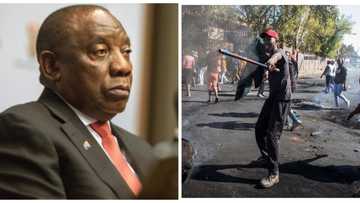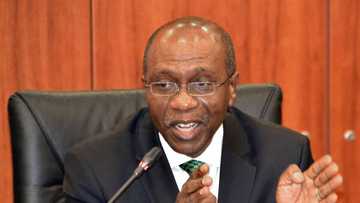Nigeria included as FAO releases full list of countries in need of external food assistance
The Food and Agriculture Organisation of the United Nations (FAO) has released a list of countries across the world that are in need of external food assistance.
In the FAO's quarterly report titled Crop Prospects and Food Situation, the organisation said the need for the food assistance is as a result of high levels of food insecurity and adverse weather conditions.
“About half of the 41 countries needing external assistance for food are home to civil unrest or full-fledged conflict, while others face severe resource strains due to large influxes of refugees from neighbouring countries experiencing unrest,” the report read.
Of the 41 countries listed, 31 are in Africa.
The countries listed as being in need of assistance are:
- Afghanistan
- Bangladesh
- Burkina Faso
- Burundi
- Cabo Verde
- Cameroon
- Central African Republic
- Chad
- Congo
- Democratic People’s Republic of Korea
- Democratic Republic of Congo
- Djibouti
- Eritrea
- Eswatini
- Ethiopia
- Guinea
- Haiti
- Iraq
- Kenya
- Lesotho
- Liberia
- Libya
- Madagascar
- Malawi
- Mali
- Mauritania
- Mozambique
- Myanmar
- Niger
- Nigeria
- Pakistan
- Senegal
- Sierra Leone
- Somalia
- South Sudan
- Sudan
- Syrian Arab Republic
- Uganda
- Venezuela
- Yemen
- Zimbabwe
FAO further stated that the main reasons why Nigeria and other countries is in need of food assistance are conflict and civil insecurity.
“Conflict and civil insecurity are also primary drivers of food insecurity in Burundi, Cameroon, Democratic Republic of Congo, Yemen and parts of Myanmar and Nigeria.
“Ongoing conflicts also continue to affect farming activities, limiting farmers’ access to land and causing a shortage of inputs. The conflicts and civil insecurity are affecting North-east Nigeria, the Lake Chad Basin, the Lac and Tibesti regions of Chad, northern and central Mali.
“In northeast and Northwest Nigeria, conflict incidents and violence by armed groups in recent months have been very high and have strongly hindered agro-pastoral activities,” the report added.
Scarcity of rains and adverse weather conditions other factors affecting food availability, according to FAO.
PAY ATTENTION: Get the Latest Nigerian News Anywhere 24/7. Spend less on the Internet!

Read also
Xenophobia: Following widespread condemnation of attacks, S/African president dispatches envoys to Nigeria, others
Meanwhile, Legit.ng previously reported that President Muhammadu Buhari had directed the Central Bank of Nigeria (CBN) to stop providing foreign exchange for importation of food into the country, with the "steady improvement in agricultural production, and attainment of full food security".
Malam Garba Shehu, the president’s spokesman in a statement, said Buhari stated this when he hosted All Progressives Congress (APC) governors to Eid-el-Kabir lunch at his country home in Daura, Katsina state on Tuesday, August 13.
According to the president, the foreign reserve will be used strictly for diversification of the economy and not for encouraging more dependence on foreign food.
NAIJ.com (naija.ng) -> Legit.ng: Same great journalism, upgraded for better service!
Nigeria Election 2019: Nigeria Needs a N4-Trillion Economy to Conquer Poverty | Legit TV
Source: Legit.ng



